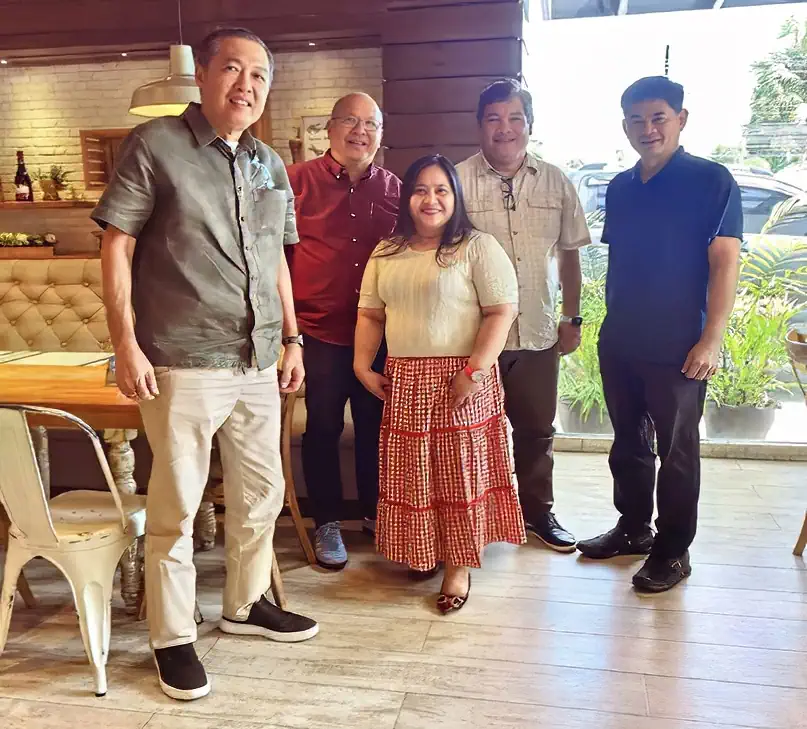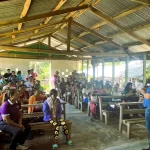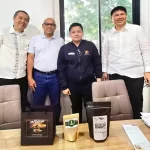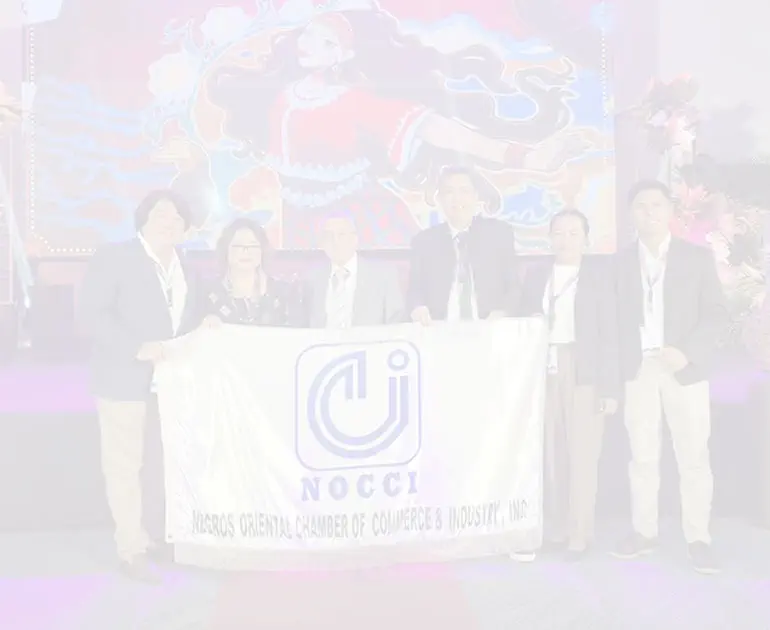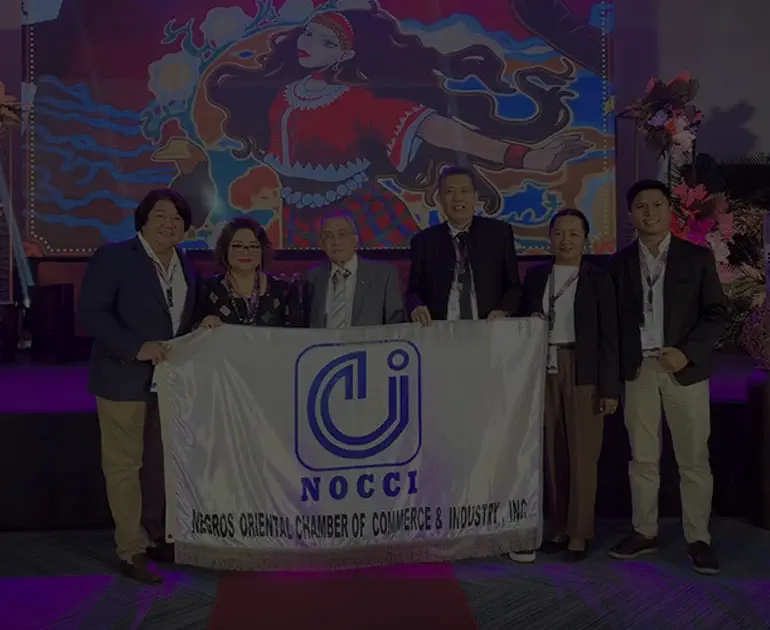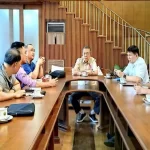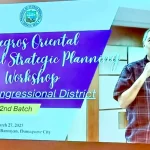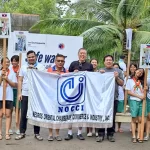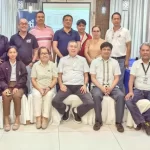Negros Oriental Chamber of Commerce and Industry (NOCCI) President Edward Du together with NORSU Board of Regents President Noel Marjon E. Yasi had a business meeting with Taguig Congressman Freddie Tinga and Dang Tirante of Global Electric Transport (GET) on promoting electric buses in Negros Oriental
NOCCI, NORSU, and GET Collaborate to Drive Electric Bus Initiative in Negros Oriental
The Negros Oriental Chamber of Commerce and Industry (NOCCI), led by President Edward Du, joined forces with Negros Oriental State University (NORSU) Board of Regents President Noel Marjon E. Yasi and representatives from Global Electric Transport (GET) to explore the potential adoption of electric buses in the province.
Taguig Congressman Freddie Tinga, an advocate for green transportation and a key stakeholder in GET, participated in the business meeting alongside Dang Tirante of GET. The meeting aimed to assess how electric buses could transform the public transportation landscape in Negros Oriental, contributing to environmental sustainability and improved urban mobility.
Exploring Sustainable Transportation Solutions
During the meeting, NOCCI President Edward Du emphasized the importance of integrating sustainable mobility solutions into the province’s development plans. “Negros Oriental has the opportunity to lead in green initiatives by adopting electric buses, a step that aligns with global efforts to combat climate change and reduce reliance on fossil fuels,” Du stated.
NORSU Board of Regents President Noel Marjon E. Yasi echoed this sentiment, highlighting the university’s interest in being part of projects that advance innovation and environmental stewardship. “Sustainability is at the core of our mission at NORSU. Collaborating with stakeholders like NOCCI and GET presents an avenue to embed these principles into practical solutions for our communities,” Yasi remarked.
GET’s Electric Bus Technology
Global Electric Transport, represented by Dang Tirante, showcased its innovative electric bus technology during the meeting. GET specializes in eco-friendly transportation systems designed for efficiency and minimal environmental impact. The company’s electric buses are powered by clean energy, offering a sustainable alternative to traditional diesel-powered vehicles.
Congressman Freddie Tinga shared insights on GET’s successful projects in urban centers like Taguig City. He highlighted how electric buses have proven to be cost-effective and environmentally friendly while addressing challenges such as air pollution and traffic congestion.
Potential Benefits for Negros Oriental
Adopting electric buses in Negros Oriental could yield significant benefits, including:
- Reduced Carbon Emissions: Electric buses operate without emitting greenhouse gases, contributing to cleaner air in urban and rural areas.
- Lower Operating Costs: With fewer moving parts and reliance on electricity instead of diesel, electric buses are more cost-efficient over time.
- Enhanced Public Transport Services: Electric buses offer a quieter and more comfortable ride, improving the commuter experience.
- Support for Renewable Energy: The integration of electric buses could align with efforts to expand renewable energy adoption in the province.
Collaboration with Local Stakeholders
The meeting underscored the need for collaboration among various stakeholders, including government units, academic institutions, and private sector partners. NOCCI’s involvement is seen as pivotal in bringing together the business community to support the project’s implementation.
Du assured GET of NOCCI’s commitment to engaging local stakeholders to ensure the initiative’s success. “Our role as a business chamber is to create a platform where innovation can thrive. This electric bus initiative is a game-changer for Negros Oriental’s transport sector,” he said.
NORSU’s Role in Green Transport Advocacy
NORSU Board of Regents President Yasi highlighted the university’s readiness to play an active role in promoting green transport solutions. As an institution that shapes the province’s future workforce, NORSU plans to integrate sustainability-focused programs into its curriculum to build a generation of environmentally conscious leaders.
Additionally, Yasi suggested the possibility of using electric buses for NORSU’s transportation needs, serving as a pilot project that could demonstrate the technology’s practicality and benefits.
Next Steps in the Electric Bus Initiative
The meeting concluded with plans to conduct feasibility studies and pilot programs in partnership with GET. These steps will help determine the logistical, financial, and operational requirements for deploying electric buses across Negros Oriental.
Congressman Tinga expressed optimism about the project’s prospects, noting that successful implementation in Negros Oriental could inspire similar initiatives in other provinces.
A Vision for a Sustainable Future
The electric bus initiative represents a significant stride toward achieving sustainable development in Negros Oriental. With NOCCI, NORSU, and GET working together, the province is positioning itself as a pioneer in green transportation, a move that aligns with global goals to combat climate change.
“Transforming transportation is more than just a local initiative—it’s a commitment to a sustainable future for the entire planet,” Du concluded.
As discussions progress, the collaboration between NOCCI, NORSU, and GET stands as a testament to the power of partnerships in driving meaningful change.


